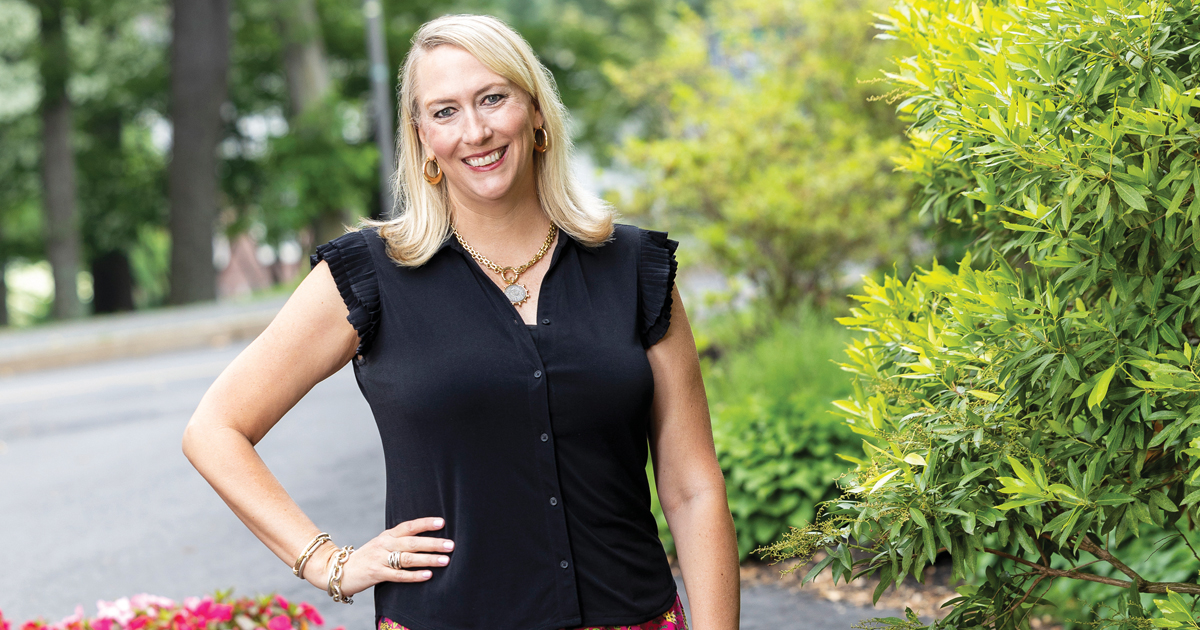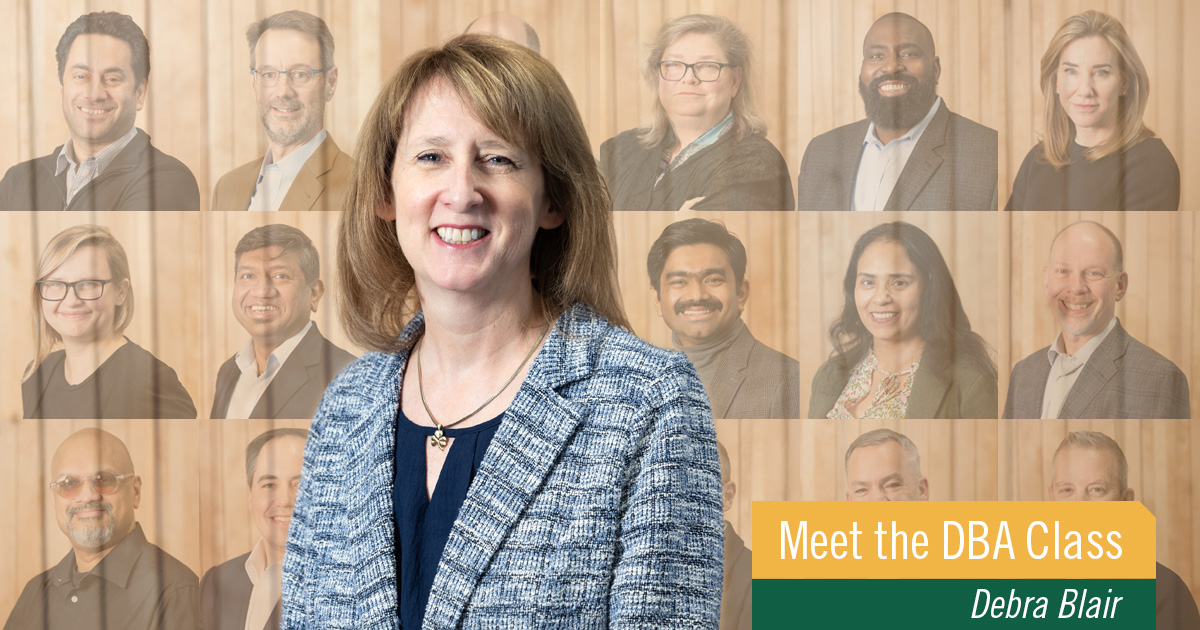The Art and Science of Teaching in Babson’s DBA Program

As a theater historian and director, Beth Wynstra, associate professor of English, thinks often about the work of world-building. Directors begin with a script and a blank stage and lead a team of actors and crew in bringing the text to life in a way that engages audiences.
She believes that these very same world-building skills can apply to entrepreneurship, which starts with an idea, aims to engage audiences such as investors and customers, and requires a team effort.
Similarly, world-building is key to the work of teaching, she adds. “At the start of a semester, you are creating a world in your classroom,” she says. “You want engaged and electric conversation, and you want everyone invested in what it is that you’re doing together.”
BABSON MAGAZINE: Read the complete Summer 2025 issue.
Wynstra, who arrived at Babson in 2010, realized over time that in addition to teaching a range of theater courses and directing plays—including multiple productions for The Empty Space Theater at Babson—she also enjoyed writing about the science of teaching. With Heidi Neck, the Jeffry A. Timmons Professor of Entrepreneurship, she co-led Inspire Studio, a program that allowed Babson faculty to gather off campus to reflect on the practice of teaching.
Today, Wynstra is the faculty director of the Center for Engaged Learning and Teaching (CELT), a resource center that helps Babson faculty and staff enhance their teaching skills. “I am a firm believer that teaching is not ever something we perfect,” she says. “It is always something that we need to be evolving and changing.” This is especially true as educators grapple with the rapidly expanding role of artificial intelligence in student learning, Wynstra adds.
She will bring such big-picture questions to courses she helped develop for Babson’s new Doctor of Business Administration (DBA) program, created for professionals who want to pursue advanced research or transition into teaching.
The Babson DBA differs from similar programs because of its emphasis on entrepreneurship and its efforts to help students develop as teachers. When she was a doctoral student in theater studies, Wynstra remembers, she and classmates received no training before teaching their first classes.
“If things go well, they will walk away from the program knowing that they are a teacher and that it is a role that they can play successfully.”
Associate Professor Beth Wynstra on Babson’s DBA Program
In contrast, the DBA students will take three pedagogy classes, including one taught by Wynstra called Teaching Across Contexts, which explores the variety of tools teachers use in the classroom, “everything from assessment to assignment building to leading group discussions,” she says.
Some DBA graduates will go on to teach at the college level, but many will not, so Wynstra will prepare them to teach in a range of situations, from heading a nonprofit to sharing research findings with corporate colleagues.
Asked about her goals for the first cohort of Babson DBA students, Wynstra reaches again for theater language. “If things go well,” she says, “they will walk away from the program knowing that they are a teacher and that it is a role that they can play successfully.”



